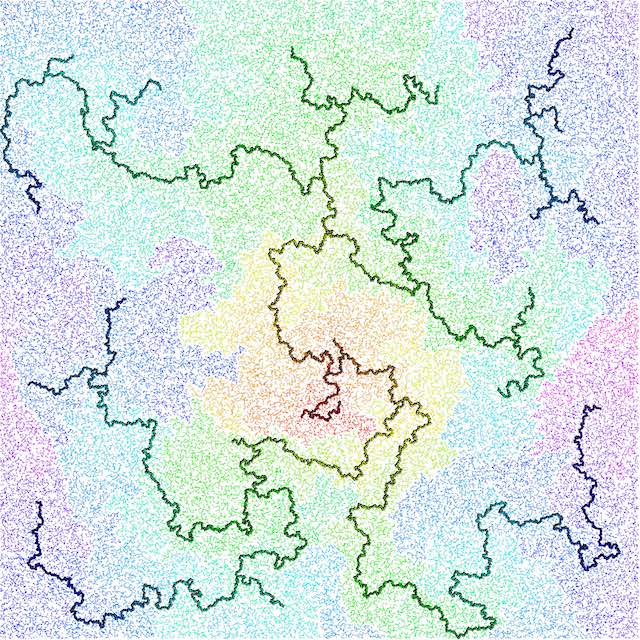Program

The minimum spanning tree of 100,000 uniformly random points. Colors encode graph distance from the root, which is red. Black points are those whose removal would disconnect at least 5% of the points from the rest.
Random graphs and related random discrete structures lie at the forefront of applied probability and statistics, and are core topics across a wide range of scientific disciplines where mathematical ideas are used to model and understand real-world networks. At the same time, random graphs pose challenging mathematical and algorithmic problems that have attracted attention from probabilists and combinatorialists since at least 1960, following the pioneering work of Erdős and Renyi.
Around the turn of the millennium, as very large data sets became available, several applied disciplines started to realize that many real-world networks, even though they are from various origins, share fascinating features. In particular, many such networks are small worlds, meaning that graph distances in them are typically quite small, and they are scale-free, in the sense that the number of connections made by their elements is extremely heterogeneous. This program is devoted to the study of the probabilistic and statistical properties of such networks. Central tools include graphon theory for dense graphs, local weak convergence for sparse graphs, and scaling limits for the critical behavior of graphs or stochastic processes on them. The program is aimed at pure and applied mathematicians interested in network problems.
Bibliography
Keywords and Mathematics Subject Classification (MSC)
Tags/Keywords
Structure of/optimization on random graphs
statistics of networks
counting and sampling discrete structures
estimation of network parameters
complexity vs. statistical accuracy
community detection
combinatorial statistics
random processes on graphs
randomized algorithms on random graphs
probabilistic analysis of network algorithms
| January 23, 2025 - January 24, 2025 | Connections Workshop: Probability and Statistics of Discrete Structures |
| January 27, 2025 - January 31, 2025 | Introductory Workshop: Probability and Statistics of Discrete Structures |
| April 21, 2025 - April 25, 2025 | Detection, Estimation, and Reconstruction in Networks |